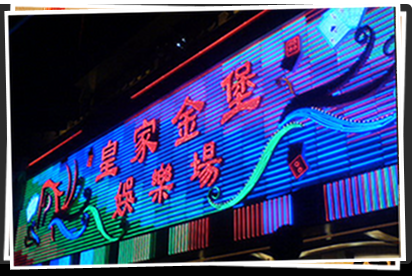We are great believers in the China story, as we expressed in our e-newsletter last week. We think the near-term outlook for Macau is bigger than most analysts are calling, and we believe that China is headed in the right direction from a macro-economic perspective. As infrastructure improves, as incomes grow, and as the marketing pitch into the hinterland gets better, we see Macau continuing to prosper. As we said last week, there are clouds on the horizon, we just can’t see them yet.
However, it is always worth considering what lies beyond the radar. So this week we would like to turn readers’ attention to three very timely reports in today’s South China Morning Post and ponder what they say about Macau’s future.
The first is the front-page lead about China’s most important political event of the year, the annual gathering of the Central Committee of the Chinese Communist Party: “4 Trillion yuan to boost key industries.” As the report points out, what makes this year’s meeting of 371 people in Beijing that much more important is two items on the agenda: the elevation of Vice-President Xi Jinping into the position of Vice-Chairman of the Central Military Commission, and discussion of the next Five Year Plan, which will be launched by outgoing Premier Wen Jiabao in March next year.
The two are obviously linked. If Xi, who currently oversees Hong Kong and Macau, is to become the man who will oversee implementation of the next Five Year Plan, he needs to be confirmed as Hu Jintao’s successor the same way that Hu was confirmed as Jiang Zemin’s successor a decade ago. Tradition suggested it was supposed to have happened last year, and when it didn’t, it set off waves of speculation that a struggle was under way between factions in the party. If Xi is not elevated at this weekend’s meeting, then it will be an indication of a much more serious political power struggle, and discussion of the Five Year Plan will be meaningless by comparison.
We seriously doubt this will happen. Which brings us to the second issue raised by the SCMP report: a fundamental change is being envisaged for the next Five Year Plan. The emphasis will shift away from growth targets and towards specific sectors and regions as Beijing attempts to restructure the country’s economy. The ultimate goal, it would appear, is to give teeth to the stated objectives of the central planners: that China needs to stimulate real, sustainable domestic demand. What we take this to mean is that the current model is no longer feasible. Pumping the economy with liquidity via the banks and building massive infrastructure projects while the export sector takes care of revenues has clearly begun reaching the end of its life span. It is time for more fundamental market reforms.
The challenge facing policymakers in trying to turn words into deeds, however, is highlighted by the second article in today’s edition of the newspaper: “Bankers fear sharp increase in bad loans.” On the front page of the business section is a story about a poll of bankers on the mainland who estimate that at least a quarter of all loans in the system are bad, half are not repayable by the entities that took them out but can be repaid by other means, and only a quarter are sound. More than two-thirds of respondents said they think the bad-debt problem will “explode” within three years.
We don’t think anything this dramatic this will happen, as nothing will be allowed to explode in China just yet. The party’s grip on power is still too firm to allow something like this to get out of control. A recapitalization will take place, like happened 10 years ago, when the big state banks began taking on foreign shareholders and eventually listed on overseas markets. But clearly, the financial system is not working like a financial system should in a real market-based economy. Too much money is going into projects that do not generate real value-added economic benefit. This money, which has benefitted Macau enormously via the VIP sector since last year’s stimulus plan was launched, will likely continue to pour in under the coming Five Year Plan, but the reforms envisaged in the plan are likely to be aimed at reducing the importance of state-directed credit by the time Xi starts his second five-year term.
The third article, also on the front page of the business section, highlights the future that Chinese policymakers want to see, which is young people splurging on credit cards: “Consumer credit boom on the cards.” The newspaper interviews 25-year-old Jessie Chen, who has a VW Beetle, a Blackberry, several Louis Vuitton bags and – get this – around a dozen credit cards. All on a monthly salary of around US$500. People like Jessie are still in the minority, as the bulk of consumer debt is still in houses and cars, but the trend has been set, as far as Beijing is concerned: it wants to move the credit bubble from the cadres to the masses.
OK, so time to cut to the chase. What do these three articles say about China’s – and Macau’s – futures? Here is what we see.
First, we see the credit bubble continuing to inflate in China as economic stimulus packages continue to be rolled out via the party the only way it knows how – via the party. In other words, the VIP sector will continue to perform in Macau for the foreseeable future, as state-run banks funnel credit to the well-connected. But it’s not going to last forever.
Second, we see the credit bubble continuing to inflate in China as the party struggles to reform the banking sector. It’s easier to reform the banks gradually, because to do otherwise would cause too great a shock to the system, and a new party chief is not going to allow that to happen on his watch. Not the first watch, at least. It is a ticking time bomb, but it’s not going to explode anytime soon. So both VIP and mass are safe, for now.
Third, we see the credit bubble continuing to inflate in China as the banks struggle to ignite a consumer spending boom by handing out more and more cash to people like Jessie Chen, who have never had to think about rising interest rates or prudent financial planning. This will be good for the mass market in Macau.
The question we know all our readers are asking at this stage is the obvious one: when will the music stop? And we are sorry to disappoint by saying that we have absolutely no idea. It may never stop. The bank recapitalizations might well continue indefinitely – or at least until reforms have taken root and a real financial system starts to function along the lines of … oops, we were about to say America’s or Europe’s.
Seriously, though, enough of the crystal ball-gazing. The risk is out there. We will watch for it washing up on our shores, but there is no point worrying about it now. Unless, that is, you are putting together a couple of Five Year Plans of your own. Stay tuned.
Used with permission & copyright IntelMacau





















